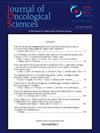Machine Learning Models Predict Early Postoperative Relapse in Pancreatic Cancer
Q4 Medicine
引用次数: 0
Abstract
115 Pancreatic ductal adenocarcinoma (PDAC) is a deadly disease even in the localized stage. The 5-year survival is approximately 10% in the USA, and 8085% of the patients present unresectable or metastatic cancer.1,2 Even for individuals eligible for surgery, the prognosis is dismal, with only 20% surviving 5 years.1-3 While recent advances in surgery and adjuvant chemotherapy have improved survival times, the outcomes are still far from desired. PDAC remains the fourth leading cause of cancer-related deaths in the world.4 A significant obstacle is the considerable heterogeneity of the disease and the lack of reliable clinical risk stratification. Early-stage colorectal cancer and breast cancer do not present these disadvantages, and hence, it is easy to tailor treatment selection. In the constantly changing paradigm of new treatments, it is essential to identify prediction strategies for selecting the best treatment for the right patient.5 However, current knowledge currently lacks such guiding ability.机器学习模型预测胰腺癌术后早期复发
胰腺导管腺癌(PDAC)即使在局部阶段也是一种致命的疾病。在美国,5年生存率约为10%,8085%的患者出现不可切除或转移性癌症。1,2即使适合手术治疗的患者,预后也很差,只有20%的患者能存活5年。虽然手术和辅助化疗的最新进展改善了生存时间,但结果仍远未达到预期。PDAC仍然是世界上第四大癌症相关死亡原因一个重要的障碍是疾病的相当大的异质性和缺乏可靠的临床风险分层。早期结直肠癌和乳腺癌不存在这些缺点,因此,很容易定制治疗选择。在不断变化的新治疗模式中,确定预测策略以选择适合患者的最佳治疗是至关重要的然而,现有的知识目前缺乏这种指导能力。
本文章由计算机程序翻译,如有差异,请以英文原文为准。
求助全文
约1分钟内获得全文
求助全文
来源期刊

Journal of Oncological Sciences
Medicine-Oncology
CiteScore
0.10
自引率
0.00%
发文量
16
审稿时长
29 weeks
 求助内容:
求助内容: 应助结果提醒方式:
应助结果提醒方式:


